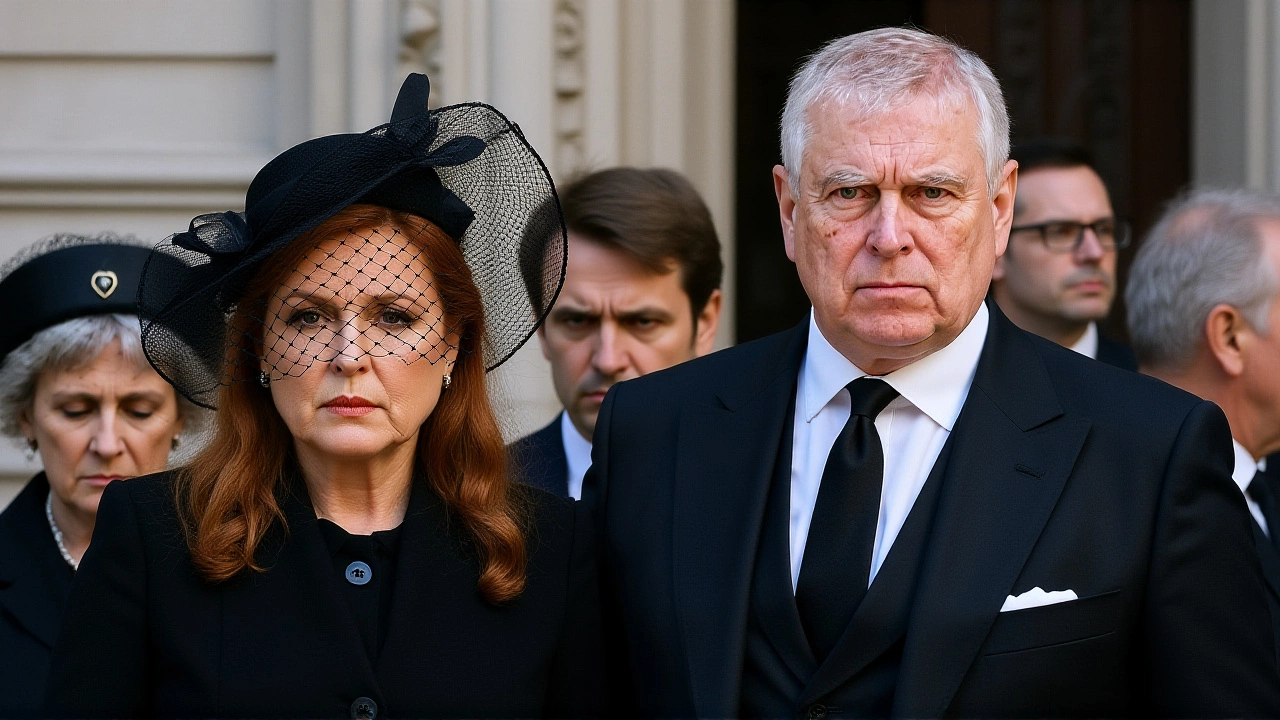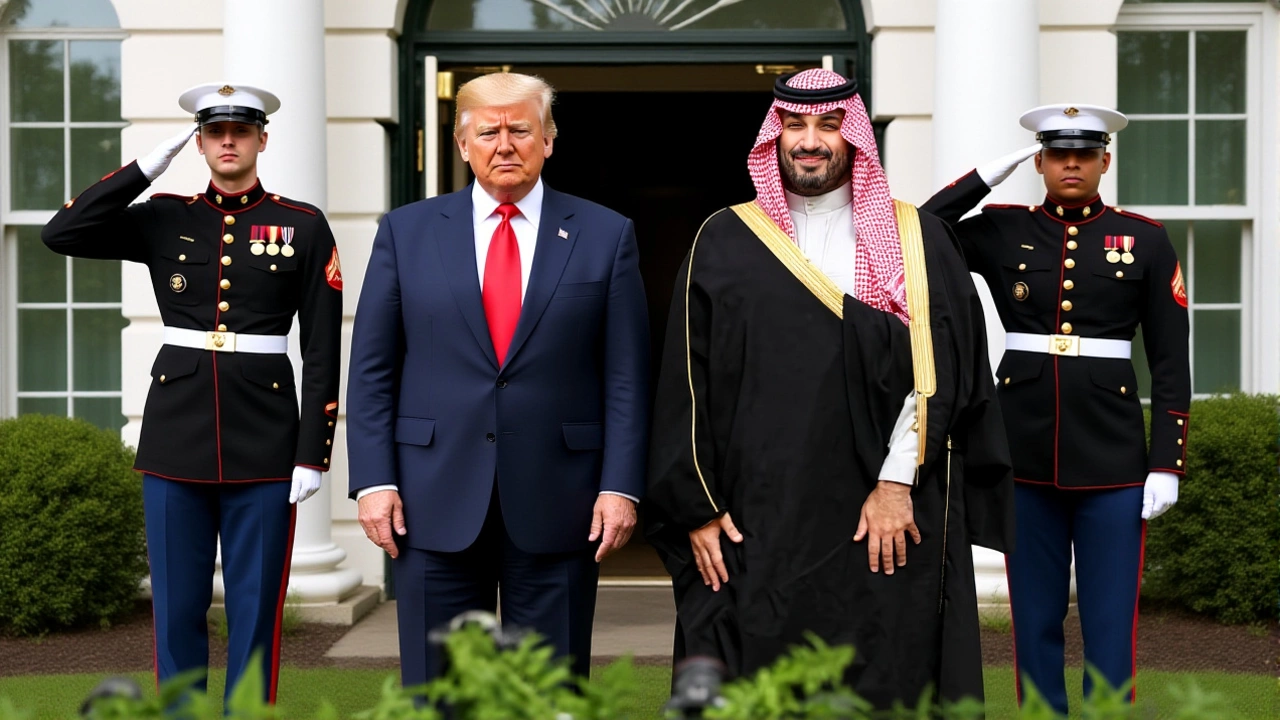When President Donald Trump told Saudi Crown Prince Mohammed bin Salman during their November 18, 2025, meeting that MBS 'knew nothing about it' regarding the 2018 murder of journalist Jamal Khashoggi, he didn’t just dismiss a war crime—he ignored the U.S. intelligence community’s unambiguous findings. Senator Tim Kaine (D-VA), who released a scathing statement the same day from his office in the Hart Senate Office Building, called Trump’s remarks “disgusting” and accused him of putting personal financial gain ahead of justice for a Virginia resident whose killing shocked the world. Khashoggi, a Washington Post columnist and legal resident of McLean, Virginia, was brutally murdered inside the Saudi consulate in Istanbul in October 2018. His death wasn’t just an international scandal—it was a personal tragedy for a family that still lives in Northern Virginia.
What the Intelligence Community Knew—and What Trump Ignored
U.S. intelligence agencies, including the CIA and the Office of the Director of National Intelligence, concluded with high confidence in 2018 that Crown Prince Mohammed bin Salman personally approved the operation to kill Khashoggi. That assessment was reaffirmed in declassified reports through 2020 and again in internal briefings as recently as 2024. It wasn’t speculation. It was documented. Yet on November 18, 2025, Trump told reporters, “Things happen,” as if Khashoggi’s dismemberment were some inevitable byproduct of international diplomacy. Kaine didn’t mince words: “Those involved in the killing of Khashoggi, who was a Virginia resident and journalist, should be held responsible.”
The timing was no accident. The meeting came just weeks after Kaine introduced Senate Resolution 456, formally titled A resolution commemorating the seventh anniversary of the murder of Jamal Khashoggi and reaffirming the need for accountability. The resolution, passed by the Senate Foreign Relations Committee in October 2025, explicitly stated that the killing was “directed by Saudi government officials.” It was a quiet but deliberate act of remembrance—part memorial, part indictment.
The Red Carpet and the Trump Hotel
Kaine’s statement didn’t just condemn Trump’s denial—it pointed to the money trail. “Instead of rolling out the red carpet for MBS and leveraging the presidency for private hotel deals,” Kaine wrote, “Trump should be demanding accountability.” The reference is unmistakable: the Trump International Hotel Washington, D.C., located at 1100 Pennsylvania Avenue NW, has hosted Saudi dignitaries since 2017. Records show at least $1.2 million in payments from Saudi-linked entities to the hotel between 2017 and 2020. The Trump Organization, headquartered in New York, never disclosed these transactions as conflicts of interest. Critics say the hotel became a diplomatic backchannel—where favors were traded for floor space and banquet halls.
It’s not just about the hotel. Since 2018, the U.S. has sold over $100 billion in arms to Saudi Arabia, despite congressional objections. The Kingdom, under MBS, has tightened its grip on power, jailed dissidents, and launched a brutal war in Yemen. Yet the White House continues to treat MBS as a strategic partner—not a suspect. “This isn’t just about one murder,” Kaine said. “It’s about whether America still stands for anything beyond profit.”

Why This Matters to Virginia
Jamal Khashoggi wasn’t just a journalist. He was a neighbor. He lived in McLean, a quiet suburb of Washington, D.C., where his fiancée, Hatice Cengiz, still resides. His children attend public schools in Fairfax County. His voice—once heard in the opinion pages of The Washington Post—still echoes in community forums and college classrooms across Northern Virginia. When Kaine says “Virginia resident,” he’s not speaking abstractly. He’s talking about the man who walked his dog in Tysons Corner, who picked up coffee at the Starbucks on Chain Bridge Road, who argued passionately about press freedom in the same town where U.S. senators write the laws.
That’s why Kaine’s statement carried such emotional weight. It wasn’t just political theater. It was a father’s grief made public. A community’s outrage made official. And a promise—unfulfilled since 2018—that justice would come.
What’s Next? The Senate’s Next Move
With Resolution 456 now law, Kaine is preparing to introduce new legislation to impose targeted sanctions on Saudi officials who evaded accountability after the 2018 Global Magnitsky Act sanctioned 17 individuals. He’s also pushing for a formal Senate Foreign Relations Committee hearing on U.S.-Saudi ties, scheduled for January 2026. Meanwhile, the Department of Justice has reportedly reopened its investigation into possible violations of the Foreign Corrupt Practices Act related to the Trump Hotel transactions.
But the real question isn’t legal—it’s moral. Will Congress finally force a reckoning? Or will the U.S. continue to look the other way, as long as oil flows and arms deals get signed?

Background: A Murder That Changed Diplomacy
The killing of Jamal Khashoggi in October 2018 was one of the most audacious acts of state violence in modern history. He walked into the Saudi consulate in Istanbul seeking documents for his upcoming marriage. He never walked out. Audio recordings, forensic evidence, and intercepted communications later showed he was drugged, tortured, and killed by a 15-member Saudi team sent from Riyadh. His body was dismembered with a bone saw and dissolved in acid.
The world reacted with horror. Germany suspended arms exports. Canada froze trade talks. Even some Republicans in Congress called for sanctions. But the Trump administration, eager to maintain a $110 billion arms deal and secure Saudi backing for U.S. oil policy, downplayed the evidence. The CIA’s conclusion—that MBS ordered the hit—was buried in classified briefings. Publicly, Trump insisted, “I don’t think it was him.”
Now, seven years later, the same playbook is being repeated. And this time, a senator from Virginia is refusing to let it slide.
Frequently Asked Questions
Why does Tim Kaine keep bringing up the Trump Hotel in this statement?
Kaine is highlighting a documented pattern: the Trump Organization received over $1.2 million from Saudi-linked entities between 2017 and 2020, much of it tied to stays and events at the Trump International Hotel in Washington, D.C. He argues this financial relationship creates a conflict of interest, suggesting Trump’s diplomatic stance on Saudi Arabia—particularly his defense of MBS—is influenced by personal profit rather than national security or human rights.
What did U.S. intelligence agencies actually conclude about MBS’s role in Khashoggi’s murder?
The CIA and Office of the Director of National Intelligence concluded with high confidence in 2018 that Crown Prince Mohammed bin Salman personally approved the operation to kill Jamal Khashoggi. This assessment was reaffirmed in multiple classified and declassified briefings through 2024. No U.S. intelligence official has publicly contradicted this finding, despite political pressure to soften the tone.
Is Jamal Khashoggi still considered a U.S. resident, and why does that matter?
Yes. Khashoggi was a legal permanent resident of McLean, Virginia, at the time of his death. He had applied for U.S. citizenship and lived in Northern Virginia with his fiancée and children. This makes his murder not just an international incident, but a domestic tragedy. It gives U.S. lawmakers like Kaine legal and moral standing to demand accountability under American values—not just foreign policy interests.
What actions has Congress taken since Khashoggi’s murder?
In 2018, Congress passed the Global Magnitsky Act sanctions targeting 17 Saudi officials involved in the killing. Since then, the Senate Foreign Relations Committee has held multiple hearings, but no major legislation has been enacted against MBS himself. Kaine’s October 2025 resolution, Senate Resolution 456, marked the first time Congress formally commemorated the murder and called for accountability. New sanctions targeting senior Saudi figures are expected in early 2026.
How has Saudi Arabia responded to U.S. criticism over Khashoggi?
Saudi Arabia has consistently denied MBS’s involvement, calling the 2018 investigation a “political tool.” The Kingdom has since invested heavily in U.S. lobbying firms and hosted high-level visits to the White House, including Trump’s November 2025 meeting. Riyadh argues that its strategic importance—oil, counterterrorism, and regional stability—outweighs human rights concerns, a position that continues to divide U.S. lawmakers.
What’s the likelihood of legal consequences for MBS?
Direct legal action against MBS in U.S. courts is unlikely due to sovereign immunity. However, the Justice Department’s reopened investigation into Trump Organization transactions could lead to charges under the Foreign Corrupt Practices Act. Kaine’s push for new sanctions may also isolate MBS internationally, limiting his travel and financial access. Accountability, if it comes, will likely be political—not criminal.
